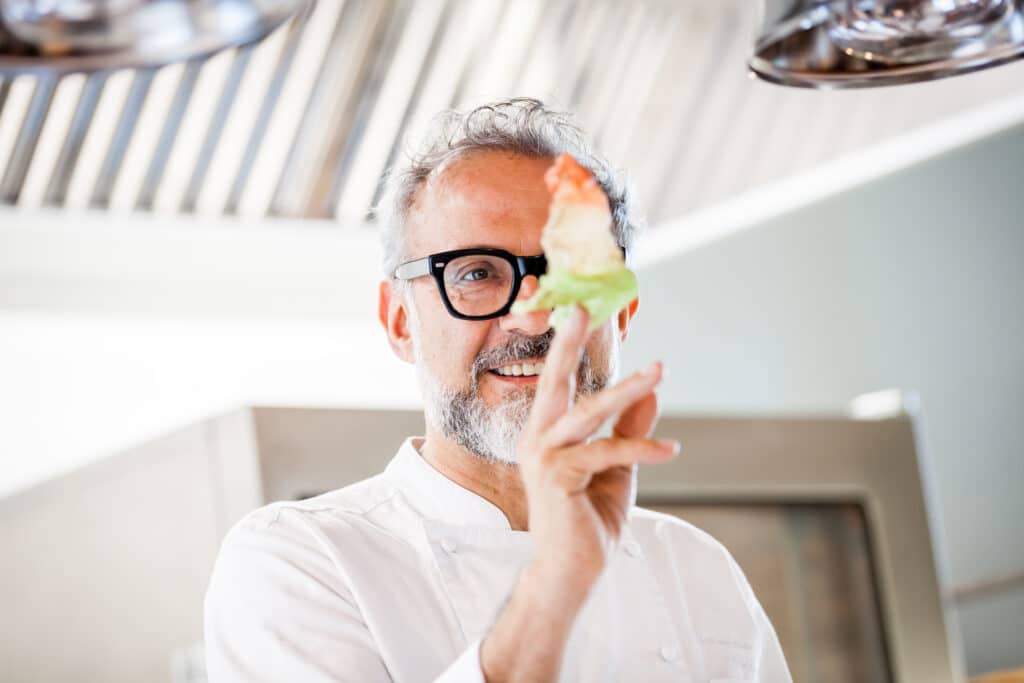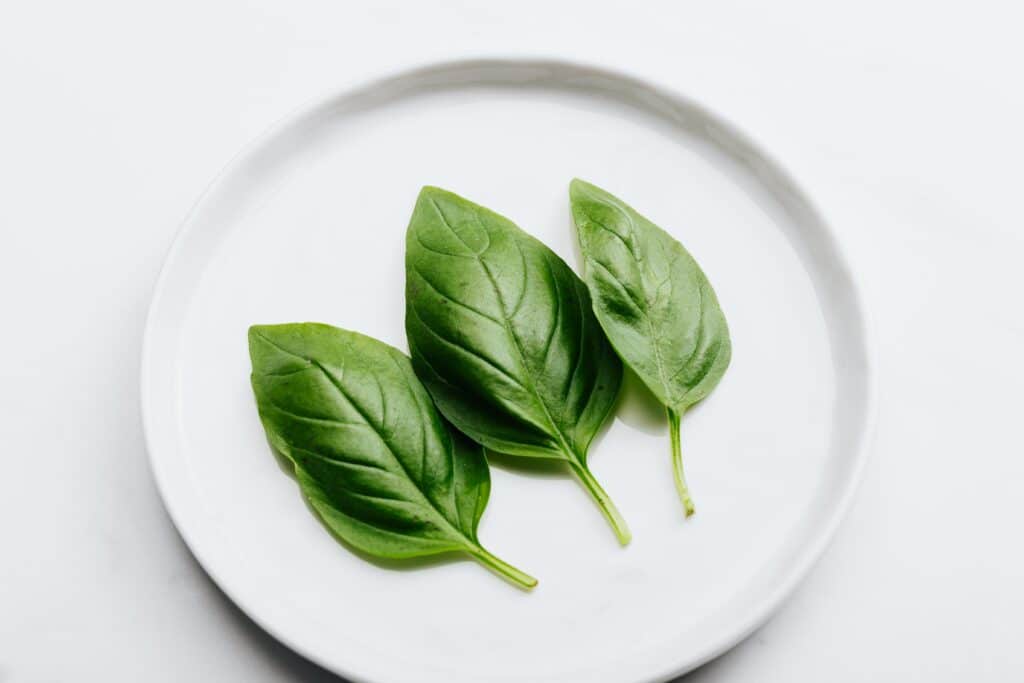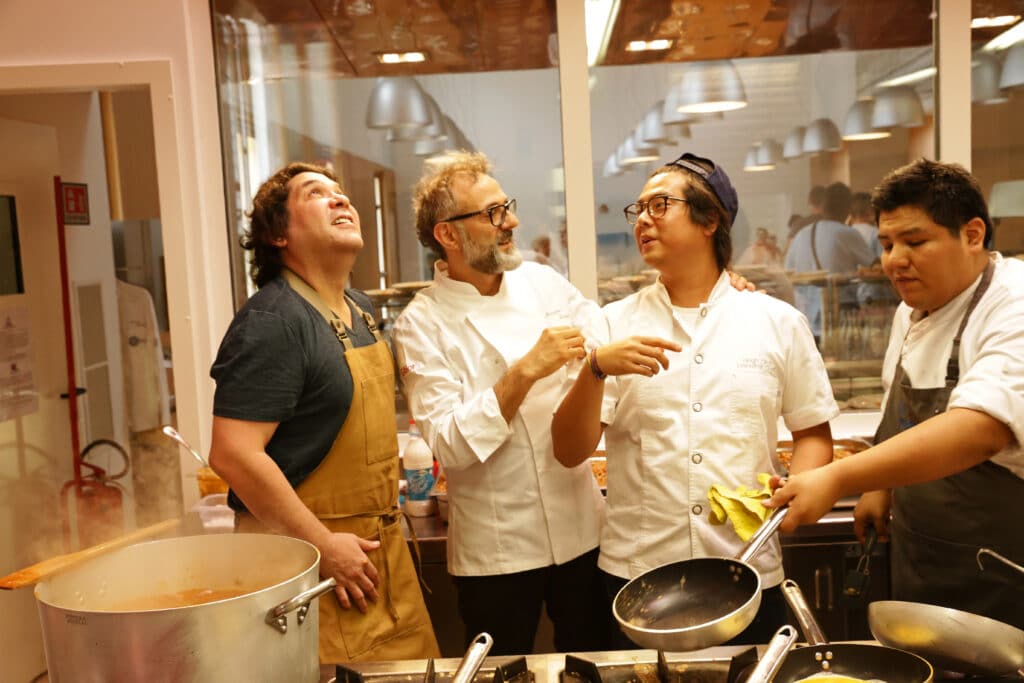
Born and raised in Modena, Italy, three-Michelin star chef Massimo Bottura’s interest in cooking started at an early age. His passion for food began at the feet of his grandmother, Ancella and mother, Luisa, as he sought refuge under the kitchen table from his three older brothers. As broth simmered on the stove, he’d watch as his grandmother and mother rolled out tortellini, sure to steal a few when their backs were turned. Fast forward to the present day, where chef Massimo Bottura is one of the driving forces behind modern Italian cuisine. Bottura’s cuisine follows the philosophy of tradition in evolution: looking at the past in a critical, never nostalgic way, to bring the best of the past into the future. Inspired by contemporary art, music, and everything around him, Bottura compresses his passions and childhood memory into edible bites.
This past April 7, Buonissimo hosted an exclusive masterclass with chef Massimo Bottura where he and Corrado Paina, Executive Director of the Italian Chamber of Commerce of Ontario Canada (ICCO Canada), talked about innovation, tradition, and Bottura’s Food for Soul project.
EVOLVING ITALIAN FOOD TRADITIONS

A thoughtful, seasonal approach to ingredients has always been ‘the Italian way’, and for Bottura it’s no exception. “Ingredients are the base, the column, the [foundation] of great cooking,” he says. He stresses the importance of forging relationships with farmers, butchers, cheese makers, and fishmongers to source the freshest, high-quality ingredients. When an ingredient is at its best, it shines with simplicity, like the Parmigiano Reggiano DOP and Genovese basil used in his masterclass for Buonissimo. Certifications like DOP, IGP, and DOC/DOCG are not only a guarantee of authenticity, but also of quality. What was good 100 years ago is still good today.
At the same time, Bottura has been a revolutionary culinary force, building on tradition to create new classics. “Tradition is an innovation well done. Once you create, you’re lucky if in the middle of your creation you find something very special that can become tradition,” says Bottura. For example, his award winning dish — Five Ages of Parmigiano Reggiano in Different Textures and Temperatures — uses five different ages of Parmigiano Reggiano DOP, highlighting the unique characteristics of each in one harmonious dish. “I created this dish to show the aging process and as a portrait of Emilia-Romagna,” he says. “It’s a magic place for gastronomy — Modena is the heart of the food valley. We have more IGP and DOP [designations] than any other region in Europe,” Bottura adds. This dish was eventually named a plate of dedication of Italian gastronomy, forever cementing its ‘traditional’ status.
ITALIAN FOOD CULTURE’S NEXT GENERATION
Across all of Bottura’s restaurants, you’ll find experimentation, playfulness and creativity. It may come as a surprise that in Bottura’s restaurants, Canadians are making waves in Italy’s food scene. From George Brown College in Toronto to the kitchen of one of the most famous and acclaimed chefs in the world, Allen Huynh won a prestigious six month placement at Bottura’s Osteria Francescana in 2014. Once his placement concluded, he chose to stay.
More recently, Montrealer Jessica Rosval started making a name for herself in Italy’s restaurant industry. She was named the Top Female Chef In Italy by Guida Dell’Espresso in 2021 for her role as head chef at Casa Maria Luigia, Bottura’s famed bed and breakfast. Each year, over 100 of the top food and wine experts travel throughout Italy visiting restaurants, trattorias, taverns, pizzerias, wine tables and wineries. The Guida Dell’Espresso reviews these establishments and awards those exhibiting excellency in the Italian food and beverage landscape. Rosval has been incorporating her Canadian heritage into Casa Maria Luigia’s outdoor Sunday Brunch menu.
FOOD FOR SOUL
Around the world, approximately 860 million people don’t have enough food against a backdrop of 1.3 billion tonnes of food waste annually. Recognizing the importance of equitable food systems, Bottura and his wife Lara Gilmore founded Food for Soul in 2016. The non-profit organization aims to empower communities and improve access to quality, healthy food amongst the most vulnerable. Bottura’s passion for acting against food waste and social isolation predates Food for Soul’s founding, when he partnered with the Italian NGO Caritas Ambrosiana at Expo 2015 in Milan. Here, the first Refettorio was born, fully embracing Expo 2015’s theme: Feed the Planet, Energy for Life. Borrowing from the church’s refectory concept, where monks would gather around long communal tables to share a meal, this welcoming environment acted not only as a dining hall, but also as a gathering place for the city’s most vulnerable. Each day, guests were served a three-course meal prepared using the leftover produce from the Expo’s pavilions that otherwise would have gone to waste.

Food for Soul builds spaces where people connect with one another over a meal, helping to show the value and the potential of people, places and food. “Eating is cultural — culture, consciousness, knowledge, sense of responsibility — it’s everything. It’s a political action,” Bottura explains. Since its inception, Food for Soul has expanded globally, having successfully launched thirteen Refettorios in Milan, Rio de Janeiro, London, Paris, Modena, Bologna, Naples, Merida, Lima, San Francisco, Harlem, Geneva and Sydney. “Beauty can really rebuild the dignity of people,” he explains.
As 2021 came to a close, Food for Soul served 150,000 meals, rescuing 670 tonnes of food. In the future, Bottura hopes to bring the Refettorio concept to Toronto. He imagines a kitchen where culinary students can gain practical experience preparing food for the city’s most vulnerable.
Banner Image Credit: Marco Poderi



Add a comment